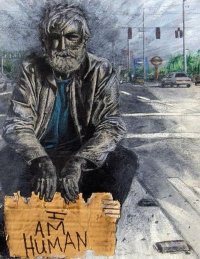
“The Saved Life Christian Fellowship exists as an alcohol/drug regeneration ministry providing an effective and comprehensive faith-based recovery program focusing on the spiritual, emotional, and physical regeneration of those suffering from alcoholism and drug addiction to help them become productive members of society. We provide the basic necessities of food, shelter, and clothing. Each program participant will be provided with a clean and healthy living environment, work therapy, leisure time activities, group and individual counseling, spiritual direction, and resources. We also assist each person to develop life skills and a personal relationship with God, as provided by our Lord and Savior, Jesus Christ.”
The previous paragraph is from the Saved Life Organizational Plan for a “Cities of Refuge” Alcohol/Drug regeneration Ministry. Our model was developed from the highly successful Dunklin Memorial Camp in Okeechobee, Florida who has been known to have a 90%+ success rate. Saved Life aims to reproduce this model with the same fruitful results! I am devoted to my vision and passion to see this dream become reality. Along this journey I am about to embark on Saturday, I want you to see what I see and, hopefully, feel what I feel! Over the next several days I am going to share with you the first few lesson plans that were developed for the Regeneration phase of our program. If you would like further information about our 14 month Christian Regeneration Program, please feel free to call me at (404) 769-1245. Please feel free to let me know what you think so far!
Lesson One
Introduction
Chemical dependency is a growing problem in the world today, yet it is misunderstood by most of us. Chemical dependency is more than a lack of willpower to stop compulsive drinking or drugging. It involves the whole person: body, soul and spirit. It radically affects a person’s relationship with God, with himself and with others in his life who are significant to him.. It deteriorates a person’s self-respect and reduces him to a level far below that which he enjoyed before his addiction. Alcoholics Anonymous describes it as “cunning, baffling and powerful.”
Why, then, in spite of all its obvious ill effects, do people continue to compulsively abuse themselves with drugs and alcohol? Most addicts simply do not know why. In these lessons we will explore some of the reasons why people compulsively drink and use drugs.
We will also examine why many addicts return to using chemicals after treatment. It is our hope that in learning about chemical dependency we can build a better foundation with which to remain sober and healthy.
When we speak of addiction, we include the entire chemical addiction field. We make no distinction between alcohol, or crack cocaine, or powdered cocaine, or marijuana, or heroin, or any other drug. It doesn’t matter if the addict drinks the chemical or smokes it or chews it or sniffs it. What matters is his bodily reaction after the chemical is ingested. In other words, the “high” it produces.
It also helps if we understand the concept of poly-addiction. Poly, means more than one. One of the most dangerous fallacies in drug treatment is the distinction between alcoholism and drug addiction. Some treatment facilities suggest that even though a person has a problem with cocaine, he can continue to drink alcohol or smoke marijuana. This is completely unreasonable. The brain reacts the same way to chemical infusion, regardless of the chemical or how it was brought into the body.
Every addict has a drug of choice, but when that drug is unobtainable, he doesn’t quit using, he finds another drug. The addict has to realize it is impossible for him to switch from one chemical to another as he attempts to be healed of his addiction. Any chemical is mood-altering, and that is what the addict searches for. He is addicted to the euphoria.
UNDERSTANDING CHEMICAL DEPENDENCY AS A DISEASE.
The American Medical Association formally recognized alcoholism as a disease in 1956. It meets the following criteria, which qualifies it as a disease:
1. It is a condition that is describable over the general population.
2. It runs a predictable course leading to premature death.
3. It has a predictable rate of response to a specific form of care.
4. Descriptive words associated with it lead to a specific form of care:
a. Primary
b. Progressive
c. Chronic
Understanding chemical dependency as a disease reveals why addicts continue to drink and drug long after it seems the `sensible thing to do.’ However, the fact that chemical dependency is a disease is no excuse for an addict to continue to use drugs or alcohol, nor does it release the addict from the responsibility to seek treatment and to continue in a program of recovery.
1. Chemical Dependency Is A Condition That Is Describable Over The General Population.
Although chemical addiction occurs in different people at different times in different locations, its characteristics, symptoms and aspects are the same. It has no respect for age, race or nationality. The addict can be tall or short, fat or thin, rich or poor. Regardless of the circumstances or the people involved, chemical dependency has five common characteristics:
1. Compulsive abuse
2. Denial and Projection
3. Alienation from God
4. Isolation from true self
5. Alienation from others who are significant in the addict’s life
As chemical addiction continues to develop, it generates other characteristics, including black-outs, personality changes, preoccupation with alcohol and drugs, intolerance, evasion, rigidity, ambivalence, unworthiness, manipulation, hostility, sabotage, etc. The list is endless. These characteristics develop regardless of the age group, the class of society, the religion, the intelligence level or the country in which the addict lives. They have remained the same throughout history. The book of Proverbs was written over 3,000
years ago. This is what it has to say about alcoholism:
“Who has woe? Who has sorrow? Who has contentions? Who has complaining? Who has
wounds without cause? Who has redness of eyes?
Those who linger long over wine, those who go to taste mixed wine. Do not look on the wine when it
is red, when it sparkles in the cup, when it goes down smoothly; at the last it bites like a serpent, and stings
like a viper.
Your eyes will see strange things, and your mind will utter perverse things. And you will be like one
who lies down in the middle of the sea, or like one who lies down on the top of a mast.
They struck me, but I did not become ill; They beat me, but I did not know it. When shall I awake? I
will seek another drink. (Proverbs 23:29-35)
2. The Disease Of Chemical Dependency Is Primary.
Chemical addiction is not a secondary problem, nor is it a symptom of underlying problems. Chemical dependency either causes a problem or aggravates a problem that is already there. Alcohol and drug addiction block treatment and healing for any other problems the addict has. Because of this, chemical dependency must be dealt with first. This makes it a primary problem.
For years, psychologists approached chemical dependency by saying, “Let’s find out what causes you to drink,” They began to look at problems in the lives of the addicts, but they couldn’t get their clients to quit drinking or drugging.
Likewise, spouses have tried to help their loved ones become sober by tending to all their problems, those conditions that seemed to `make’ their addict use chemicals. This also does not work.
For the addict to arrive at a point at which he can be healed, he must quit drinking and drugging, and recover a sober mind and judgment. Until that occurs, no healing will take place. For example, to receive healing from a childhood hurt, the addict must first become chemical-free before God can effectively work in him and he can respond to what God wants him to do.
Chemical addiction has also been treated as a moral problem. If the addict would exercise his willpower, he could quit. But when we take a look at the hundreds of millions of people throughout the world we can see it is more than a problem of willpower.
It is slowly being recognized that chemical addiction is an irreversible allergy. Once the use of chemicals progresses through the social stage to the addictive stage, all control is lost. It then becomes a primary problem, and must be treated as such.
3. The Disease Of Chemical Dependency Follows A Predictable, Progressive Course.
As we read in the book of Proverbs, the alcoholic of that day had the same problem and characteristics of the alcoholic today. We can predict with accuracy what will happen to the person who continues to use alcohol or drugs.
The effects of the disease of chemical dependency are as predictable as an ordinary case of the measles. If a child becomes infected with measles, the doctor can predict that for three days the child will have spots, fever, diarrhea and loss of appetite. In the same way, if a person is found to be chemically dependent, we can predict what will happen if he continues to use the chemicals. Predictably, he will run the course of social, dependent and addictive stages.
Chemical addiction is also progressive, always getting worse. It is impossible for an addict to drink or drug himself into better health or better relationships. As he continues to use chemicals, his condition will get progressively worse.
As a multi-phase disease, chemical addiction affects us spiritually, mentally, emotionally and physically. A major problem is that it affects us physically last. By the time the addict recognizes that his body is seriously damaged, he is already in the fatal stage of addiction. If it would affect him physically first, he may be inclined to seek treatment earlier, before it reaches the fatal stage.
Alcoholics often experience a physical plateau in their addiction. They reach a certain tolerance level and they may stay there for months or years. But eventually physical resistance breaks down and they continue to deteriorate. Through extended chemical use, they inevitably get worse. The effect upon the spiritual, mental and emotional characteristics do not seem to reach plateau, they deteriorate continuously.
4. Chemical Dependency Is Permanent Or Chronic.
Chronic means ongoing. This is where we begin to understand how serious the problem is. No one has the measles for a lifetime; they eventually clear up. This is not the case with those who are chemically addictive. They have an irreversible `allergy’ to drugs and alcohol. The body of a chemically addictive person processes the chemicals differently than the body of one who is not addictive. Chemicals deplete the addict’s brain of its normal level of endorphins (nature’s chemicals that give a sense of serenity and good feeling). This creates a craving within the addict for the feeling he no longer has, naturally.
The addict’s body changes in such a way that once the invisible line from dependent to addictive use is crossed, it does not change back to normal. Never again will the addict be able to use chemicals again. If he uses them, he will abuse them. Once a person is an addict, it is impossible for him to return to social use of chemicals again. This includes the use of all chemicals, because the addict is poly-addictive.
It is important to remember that an addict cannot be an addict for fifteen years, quit using for one year, then begin using at the social level. Any time he attempts to use chemicals, he will begin where he left off, regardless of the length of his sobriety.
The only certain method of maintaining an `arrest’ of chemical addiction, is to become, and remain, drug and alcohol free.
5. Chemical Dependency Is A Fatal Disease.
If left untreated, chemical dependency is 100% fatal. Statistics show that the average American male lives to be 74 years old. The alcoholic, on the other hand, has an average life span of 51 years. There are no verified statistics for the life span of drug addicts, but it appears that the drug addict has a much shorter life span than the alcoholic.
Chemical dependency is not just a bad habit, it is a life and death situation!
There are various ways in which one can die from chemical dependency. Fatal physical ailments from compulsive abuse include heart conditions, cirrhosis of the liver, cancer, etc. Compulsive use of chemicals affects almost every body organ. It affects the heart, brain, liver, kidneys, pancreas, lungs, stomach, esophagus, etc. It also can generate malnutrition.
Chemical abuse also causes deaths from accidents, such as auto accidents, on-the-job accidents, drownings, etc. Approximately one-third of all addicts die from accidents.
In addition, there are deaths from the emotional ailments of addiction, such as depression, which leads to suicide. There is also the reckless quest for the extreme emotional high from certain drugs, which leads to death by overdose.
We can see by this that the physical, the accidental and the emotional effects of chemical addiction all work toward early death.
6. The Disease Of Chemical Addiction Is Treatable.
Even though chemical addiction is primary, predictable, progressive, chronic and fatal (which would make it seem to be the worst disease around), it has one more very important characteristic: it can be arrested.
Those who have stopped drinking and drugging and have persistently worked a program for recovery (such as this one) have been able to live full lives again. Even those whose organs are permanently damaged can live longer than they would have lived without treatment.
Recovery from chemical addiction requires a lifestyle change, including a structured, disciplined program to bring it about. An effective program for recovery must include all facets of the person, spirit, soul and body, for the addict to become completely free of his disease. In addition, it must include a restoration process, to restore the addict’s relationships with God, with himself and with others.
We at Saved Life have such a program! We need you, our faithful supporters and partners to help us make this a reality. Our approach to prevention and treatment substance abuse is to teach an entire new way ofliving – addressing family relationships, work ethics, and community service. We believe that the key toabstinence from substance abuse is based on the spiritual dimension of a personal relationship with ourLord and Savior, Jesus Christ.
The message we present here is that the lost, sick, weary, and burdened, who are all children of God, our fellow brothers and sisters, can stand strong with and in the Power and Love of God as they strive to overcome alcoholism, substance abuse, and other life-controlling problems and self-destructive behaviors. Also, that I (Jason J. Day) have done so!

March 18, 2010
Categories: Christian Recovery . Tags: addiction, alcoholism, Christian, Christian 12 step, Christian Recovery, Saved Life, SavedLife, savedlifejason, savedliferide . Author: savedliferide . Comments: Leave a comment





















You must be logged in to post a comment.